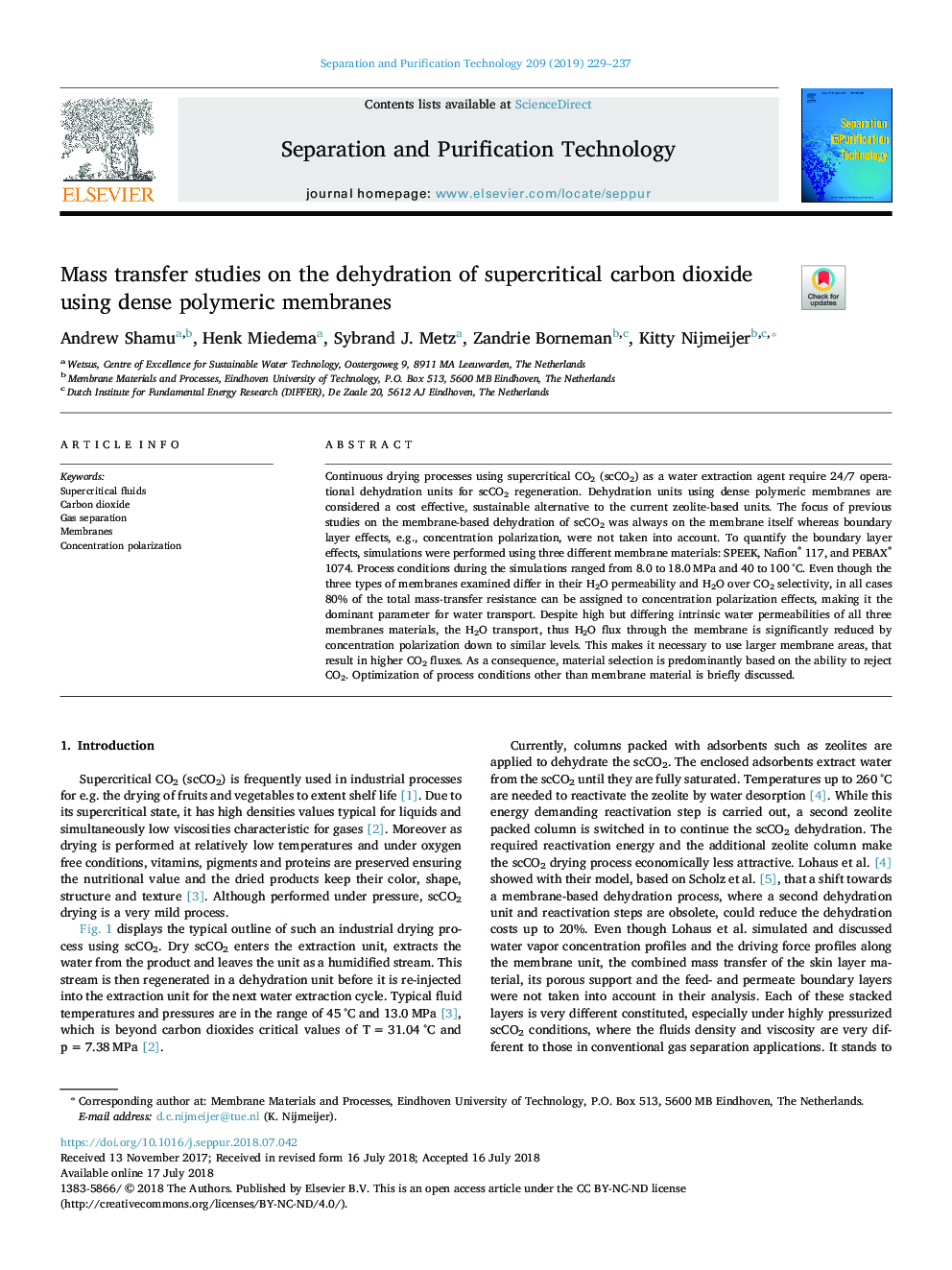| کد مقاله | کد نشریه | سال انتشار | مقاله انگلیسی | نسخه تمام متن |
|---|---|---|---|---|
| 7043470 | 1456912 | 2019 | 9 صفحه PDF | دانلود رایگان |
عنوان انگلیسی مقاله ISI
Mass transfer studies on the dehydration of supercritical carbon dioxide using dense polymeric membranes
ترجمه فارسی عنوان
مطالعات انتقال جمعی در مورد کم آبی دی اکسید کربن فوق بحرانی با استفاده از غشاهای متراکم پلیمری
دانلود مقاله + سفارش ترجمه
دانلود مقاله ISI انگلیسی
رایگان برای ایرانیان
کلمات کلیدی
مایعات فوق بحرانی، دی اکسید کربن، جداسازی گاز، غشاء قطبش تمرکز،
موضوعات مرتبط
مهندسی و علوم پایه
مهندسی شیمی
تصفیه و جداسازی
چکیده انگلیسی
Continuous drying processes using supercritical CO2 (scCO2) as a water extraction agent require 24/7 operational dehydration units for scCO2 regeneration. Dehydration units using dense polymeric membranes are considered a cost effective, sustainable alternative to the current zeolite-based units. The focus of previous studies on the membrane-based dehydration of scCO2 was always on the membrane itself whereas boundary layer effects, e.g., concentration polarization, were not taken into account. To quantify the boundary layer effects, simulations were performed using three different membrane materials: SPEEK, Nafion® 117, and PEBAX® 1074. Process conditions during the simulations ranged from 8.0 to 18.0â¯MPa and 40 to 100â¯Â°C. Even though the three types of membranes examined differ in their H2O permeability and H2O over CO2 selectivity, in all cases 80% of the total mass-transfer resistance can be assigned to concentration polarization effects, making it the dominant parameter for water transport. Despite high but differing intrinsic water permeabilities of all three membranes materials, the H2O transport, thus H2O flux through the membrane is significantly reduced by concentration polarization down to similar levels. This makes it necessary to use larger membrane areas, that result in higher CO2 fluxes. As a consequence, material selection is predominantly based on the ability to reject CO2. Optimization of process conditions other than membrane material is briefly discussed.
ناشر
Database: Elsevier - ScienceDirect (ساینس دایرکت)
Journal: Separation and Purification Technology - Volume 209, 31 January 2019, Pages 229-237
Journal: Separation and Purification Technology - Volume 209, 31 January 2019, Pages 229-237
نویسندگان
Andrew Shamu, Henk Miedema, Sybrand J. Metz, Zandrie Borneman, Kitty Nijmeijer,
